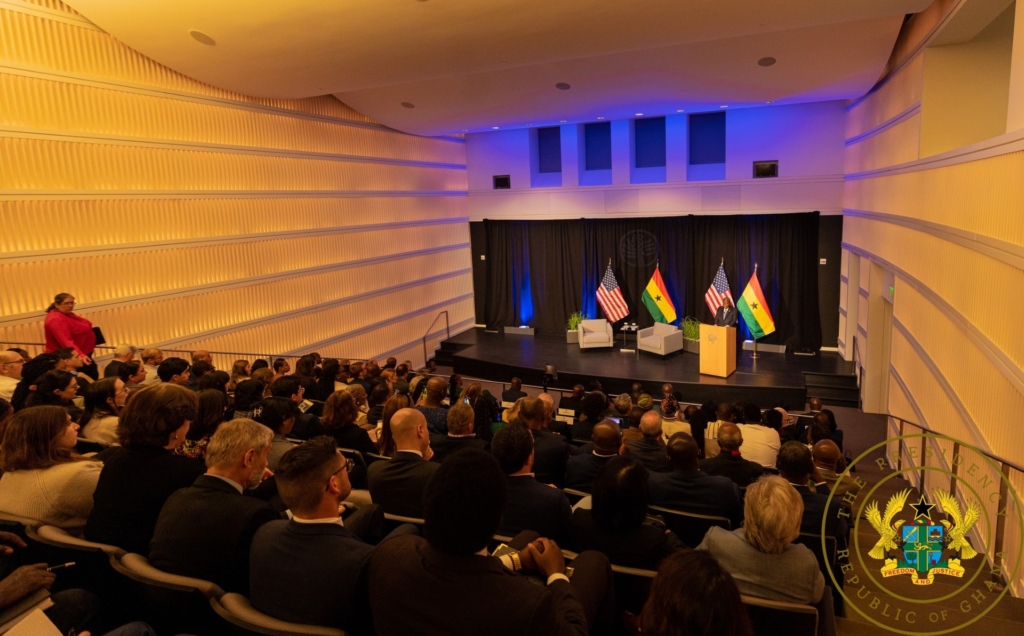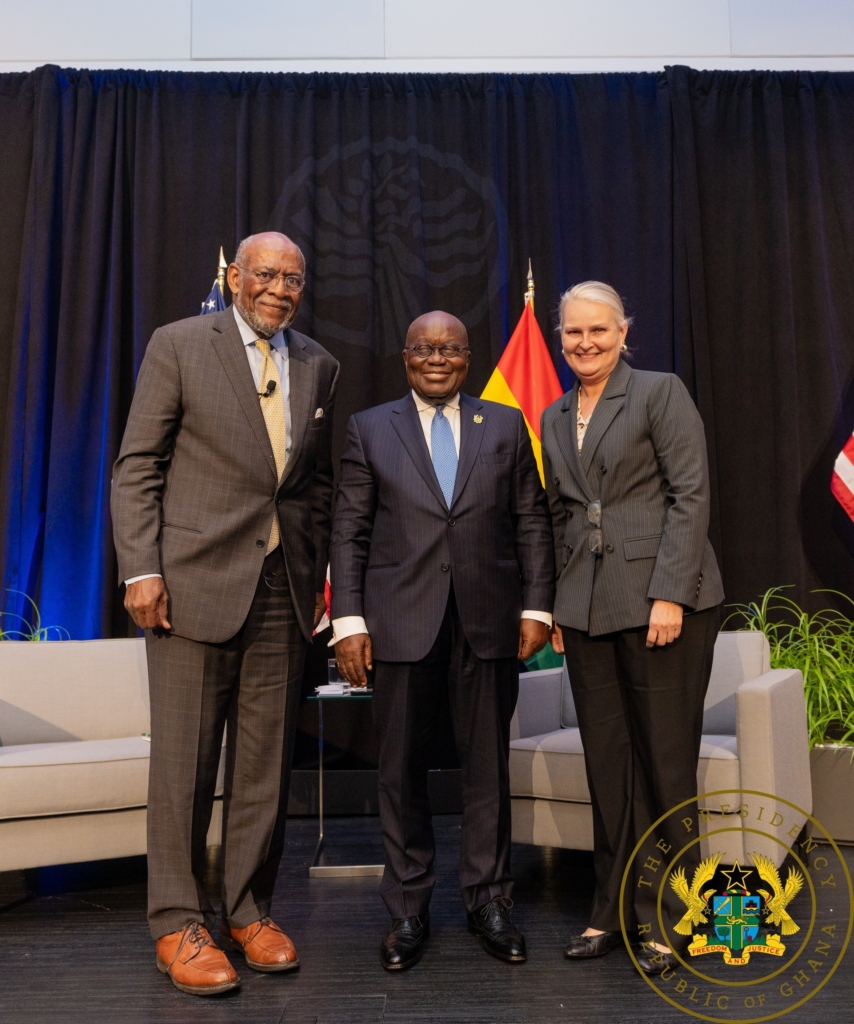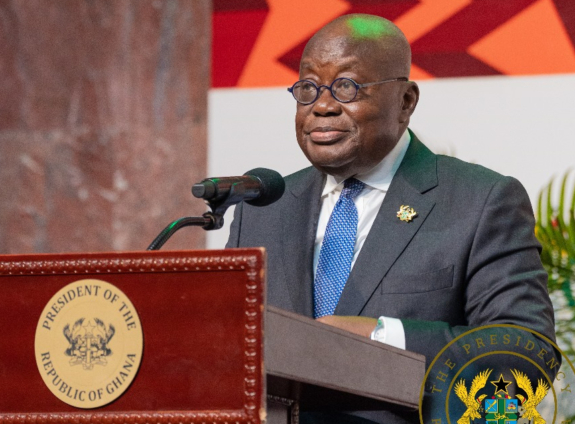President Nana Akufo-Addo is advocating a coordinated effort by global leaders to decisively tackle violent extremism in all its forms.
He cautioned that "our failure to do so, leaves the entire world in danger of a spillover effect of terrorism and violent extremism,”
It was therefore imperative for a global coalition of democracies, a coalition of the willing and determined to banish the specter of those threats, he said.
President Nana Akufo-Addo was speaking on “Democracy and Security in West Africa”, at the United States Institute of Peace’s (USIP) Programme on Governance and Peace, in Washington D.C.

In recent years, terrorism has increased alarmingly across the sub-region, resulting in significant fatalities and internal displacement of persons.
The most affected areas include the Lake Chad Basin and Sahel countries, with nearly every country affected by terrorism.
“Even more concerning is the fact that these terrorist groups are evolving by the day, as they scramble to control more territories and natural resources, especially in peripheral communities where the lack of effective State presence and control creates conditions for penetration and, ultimately, radicalisation,” the President lamented.
That development, he said, remained one of the greatest threats to democracy.
The proliferation and sophistication of terrorist networks in Africa demanded a global coordinated and sustained fight, he appealed.
“We must pool our resources together to confront a common enemy.

“The resources dedicated to counter-terrorism must match the resources available to the terrorist groups. The menace caused by terrorism is such that we must share the burden of the fight to be able to incapacitate the terrorists,” the President advised.
He was of the conviction that with the right amount of support to ECOWAS, the terrorists “can be chased out of West Africa and the Sahel too”.
“Foreign troops would not have to be involved. West African troops can do the job. The Accra Initiative is a good example of indigenous self-help.”
A concept note by USIP, spelling out the reason for the Institute’s engagement with the President, said Ghana was one of the most enduring democratic nations in the sub-region.
It is a regional leader and critical member of the West African regional bloc, ECOWAS.
Consequently, the United States and its partners are seeking ways to best support the country and other longstanding democracies in the region to promote and sustain democracy as a governance model.
This comes amid a wave of extra-constitutional movements and growing political instability in the sub-region.
Countries, including Mali, Guinea, Burkina Faso and Niger, have all seen their constitutional rule subverted by military interventions in recent times.
Latest Stories
-
Shamima Muslim urges youth to lead Ghana’s renewal at 18Plus4NDC anniversary
38 minutes -
Akufo-Addo condemns post-election violence, blames NDC
45 minutes -
DAMC, Free Food Company, to distribute 10,000 packs of food to street kids
2 hours -
Kwame Boafo Akuffo: Court ruling on re-collation flawed
2 hours -
Samuel Yaw Adusei: The strategist behind NDC’s electoral security in Ashanti region
2 hours -
I’m confident posterity will judge my performance well – Akufo-Addo
3 hours -
Syria’s minorities seek security as country charts new future
3 hours -
Prof. Nana Aba Appiah Amfo re-appointed as Vice-Chancellor of the University of Ghana
3 hours -
German police probe market attack security and warnings
3 hours -
Grief and anger in Magdeburg after Christmas market attack
3 hours -
Baltasar Coin becomes first Ghanaian meme coin to hit DEX Screener at $100K market cap
4 hours -
EC blames re-collation of disputed results on widespread lawlessness by party supporters
4 hours -
Top 20 Ghanaian songs released in 2024
5 hours -
Beating Messi’s Inter Miami to MLS Cup feels amazing – Joseph Paintsil
5 hours -
NDC administration will reverse all ‘last-minute’ gov’t employee promotions – Asiedu Nketiah
5 hours

